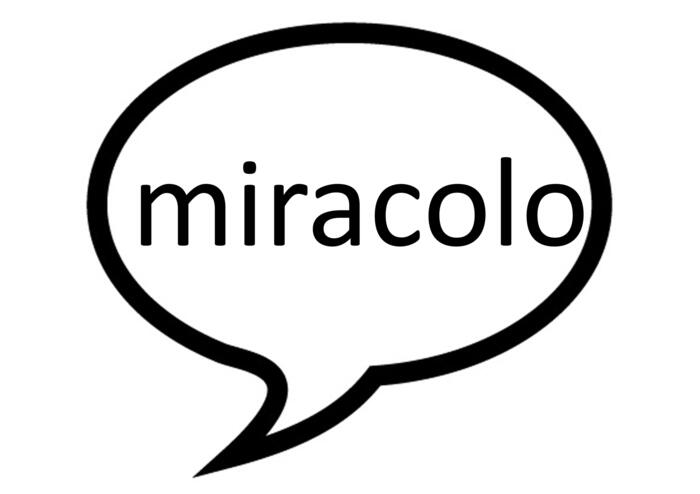MIRACLE It would take a miracle
, I made it by a miracle, or the miracle of life or peace, an expression used by the Swiss foreign minister regarding the hypothesis of a negotiation that sanctions the end of the war in Ukraine.
How many times have we said or heard these expressions used?
Starting with the days when, after the terrible earthquake in Turkey and Syria, women, men and children were still alive extracted from the rubble even after hundreds of hours.
Starting with Aya,
the child symbol of this story, born right under the rubble and whose name in Arabic means 'miracle'
.
In all these cases the way we use the word 'miracle' is clear: not only is it something extraordinary, prodigious and unexpected but above all something almost impossible.
It is also the sense in which Leonard Cohen uses it in one of his famous songs entitled Waiting for the miracle: remembered by some as the sad and depressed singer-songwriter – but the album that contains that song was entitled The future, and both are been used for the soundtrack of a controversial film, Natural Born Killers by Oliver Stone -, here Cohen awaits the miracle as he expects something that more or less subconsciously he knows will not arrive.
For the record, in Cohen's life in the early 90s the 'miracle' should have been a song that lived up to his stylistic expectations and a complete and truly fulfilling love.
Which wasn't even the one for the actress Rebecca de Mornay, with whom he had an affair in the nineties of the twentieth century just as he was preparing the record and whom he addresses in 'Waiting for the Miracle' with a real declaration of marriage ('little let's get married, we've been alone too long').
Cohen too is the expression of a culture,
the Jewish one, which will later be strengthened by Christianity, for which the miracle is such an exceptional fact, so portentous as to subvert reality, to change the order of things (the waters of the Red Sea which open to let Moses and his people pass: something which, of course, cannot happen and which in fact will never happen again. In this sense, the real contradictory exception is the miracle of San Gennaro which 'is repeated three times a year on official and solemn dates', as stated on the official website of the chapel of the saint, bishop of Benevento, who died beheaded in 305 in Pozzuoli for the persecutions wanted by Diocletian).
But the miracle has not always been this and the very origin and history of the word shows us this.
It is the recovery of a learned voice from the Latin miraculum, which means prodigy, strangeness,
marvel
and derives from mirari, to marvel.
In Greek the word was thaumazein (we have already talked about it with regard to the word 'wonderful') which accentuates the element of shock and amazement for something that surprises and fascinates.
So much so that in the Middle Ages miracle becomes synonymous with 'sacred representation', the theatrical genre from which the theater itself was reborn.
Ma miro, which means I look, as an adjective still used by Manzoni, Carducci and D'Annunzio, has the meaning of 'beautiful, worthy of great admiration': 'from the mira vision struck' or 'The mira mother in poor clothes son composed ' .
It is basically the meaning that is found in Dante of the word miracle, at the encounter between divine and earthly, in the famous verse of 'Tanto gentile e tanto onesta pare': 'and it seems that it is a thing that came from heaven to earth by miracle show'.
Here the power of God is translated and incarnated in a body and in a gaze so beautiful as to make all those who observe it sigh and silence it, as Dante sings in the Vita Nova.
And today, on the other hand, we are full of self-help manuals that explain how to become our own miracle: 'Yes, your miracle', says God-Morgan Freeman to an astonished Jim Carrey in the film
'Bruce Almighty'.
The miracle, as Cohen explained to us, despite being sudden and amazing, seems inevitably linked to the idea of waiting and suspension: Dino Buzzati, who has dedicated a book of stories to miracles, wrote the most representative Italian work of this very secular state of suspension waiting for something that will overturn reality and give meaning to life, 'The desert of the Tartars'.
And Lucio Dalla, who would have turned 80 in 2023, represented in a song the most pagan miracle that exists: the joy of a city that moves, lights up and lives again after too dark years in 'The evening of miracles'.






